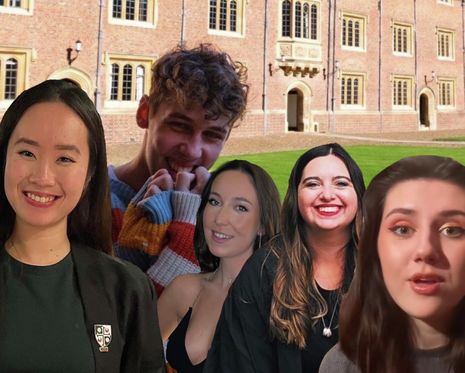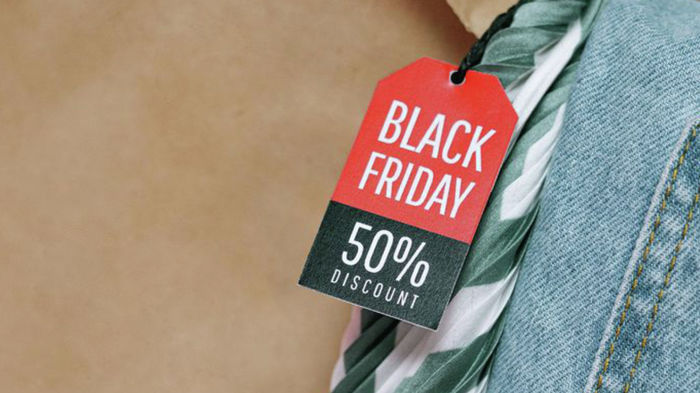Cambrinfluencers: Content creators on campus
Isabella Steinmeyer speaks to the social media stars attempting to demystify Cambridge life

On social media, Cambridge is presented as a gown-wearing, bike-strewn, cobblestone-esque place of learning. Cordelia’s Little Life accompanies montages of King’s College Chapel, punting down the Cam and candlelit formals. It can be fun to romanticise Cambridge, but sometimes uni life is less #darkacademiacore and just dark. Are these Cambrinfluencers just using the university’s prestige for clout – or is there something more meaningful behind their accounts?
It's easy to get wrapped up in the Cambridge bubble. You forget that words like “gyp”, “bedder” or “BOP” aren’t universal, and the porters system is still lost on my friends at other unis. Social media can be a great way to share the Cambridge experience with friends and family. This is especially true for international students like Marika, whose account @cambridgram documents daily life as a Physics PhD candidate, and Sydney, aka @acambridgechronicle, who runs a page dedicated to ‘soft academia’ as she studies for her PhD in Education.
Marika set out to share Cambridge’s traditions and history for friends back home. Her childhood in a “regional area of Australia filled with rainbow lorikeets, sugarcanes, coral reefs and ‘old buildings’ that dated back to the 1960s,” is a far cry from the rainy, sandstone-filled world she lives in now. Marika found Instagram was the best way to keep her Aussie mates in the loop: it’s much easier to show a video of punting than to describe it. Perhaps punters in Schöffels are Cambridge’s answer to surfer dudes?
"Cambrinfluencers try to make fellow Cantabs feel less alone"
Sydney also started her account to keep her friends and family in the US updated on her life abroad, but soon found her content resonated with a wider audience. Instagram connected her with others trying to survive the “whirlwind of academia”. So, she uses her platform to speak about the pressures of productivity culture and taking care of your mental health when facing pressing deadlines and mile-long reading lists.
The account @thestudybrew_ on TikTok and Instagram has a similar message. Alongside her content on life as a language student, Amenie, the account’s owner, tries to have “really honest conversations (often with a cup of tea) about imposter syndrome, procrastination and mental health at uni.” Though social media tends to romanticise the Cambridge experience, these Cambrinfluencers try to make fellow Cantabs feel less alone.
Content creation can also be highly rewarding. Phoebe Collins, who posts funny insights into life as a Cambridge medic on her TikTok account @phoebecollins16, says that “making light of tedious and boring days of my life is immensely therapeutic.” She is motivated by the supportive comments and messages she receives, and even counts her clinical school tutors among her fanbase. She finds it ironic that people thank her for providing study motivation when she has “spent most of [her] day making a TikTok”. But sometimes it takes a medic’s perspective to remind humanities students that reading history books is nicer than inserting catheters into plastic penises.
"There are very few queer people documenting their experiences, and very few working class people"
Social media, as proven by the University’s own Instagram account, can also inspire prospective students and applicants. Oliver, who posts vlogs and introductory guides to linguistics, started his YouTube channel Oliver Cooney because he thought there was “a pretty big gap in Oxbridge content for people like me”. He says: “There are essentially no linguists doing study content, but more importantly there are very few queer people documenting their experiences, and very few working class people, so I found it really hard to figure out what Cambridge would be like for me.” Oliver hopes his content will make our dusty institution more accessible to people from a variety of backgrounds. Marika also hopes her videos will encourage others “especially those from ethnic minorities or regional areas like me” to apply to Cambridge.
Of course, there are downsides. The wider the audience, the greater the risk of receiving hate comments. Combined with the pressure to produce content while keeping up with a busy Cambridge schedule, it’s hard not to take it personally when videos don’t perform well. For Phoebe: “Waking up to more than 400,000 notifications [was] exciting.” But, for most, the idea that you could get recognised by another student while doing your laundry or in the Revs bathroom would be about as welcome as a Monday 9am.
"Nobody is going to film every bleak stint in the library, reduced Mainsbury’s ready meal, or bout of week-five lurgy"
And while the Cambrinfluencers aim to give a realistic insight into their lives at uni, from their bed-bugged mattresses, late-night library cries, and even trips to the STI clinic, a 60-second TikTok or even a twenty-minute YouTube video will never reveal the whole story. It’s a snapshot. And it’s important to remember that nobody is going to film every bleak stint in the library, reduced Mainsbury’s ready meal, or bout of Week Five lurgy.
However, the Cambrinfluencers are united in their ability to connect. Phoebe motivates aspiring medics with a large dose of humour, while Sydney gives us a space to breathe between lectures and supervisions. Oliver breaks down barriers for queer and underrepresented voices, whereas Amenie balances study inspo with honest chats about burnout. And Marika shares our city with a global audience. Cambridge can be isolating; these content creators show that you're not the only one who finds it hard to strike a balance between work and fun, doubt and positivity, or Gardies and Van of Life. If some of their content might be a little rose-tinted, there’s meaning behind the glass.
 News / Cambridge students set up encampment calling for Israel divestment6 May 2024
News / Cambridge students set up encampment calling for Israel divestment6 May 2024 News / Cambridge postgrad re-elected as City councillor4 May 2024
News / Cambridge postgrad re-elected as City councillor4 May 2024 News / Some supervisors’ effective pay rate £3 below living wage, new report finds5 May 2024
News / Some supervisors’ effective pay rate £3 below living wage, new report finds5 May 2024 Fashion / Class and closeted identities: how do fits fit into our cultures?6 May 2024
Fashion / Class and closeted identities: how do fits fit into our cultures?6 May 2024 Features / Cambridge punters: historians, entertainers or artistes? 7 May 2024
Features / Cambridge punters: historians, entertainers or artistes? 7 May 2024






